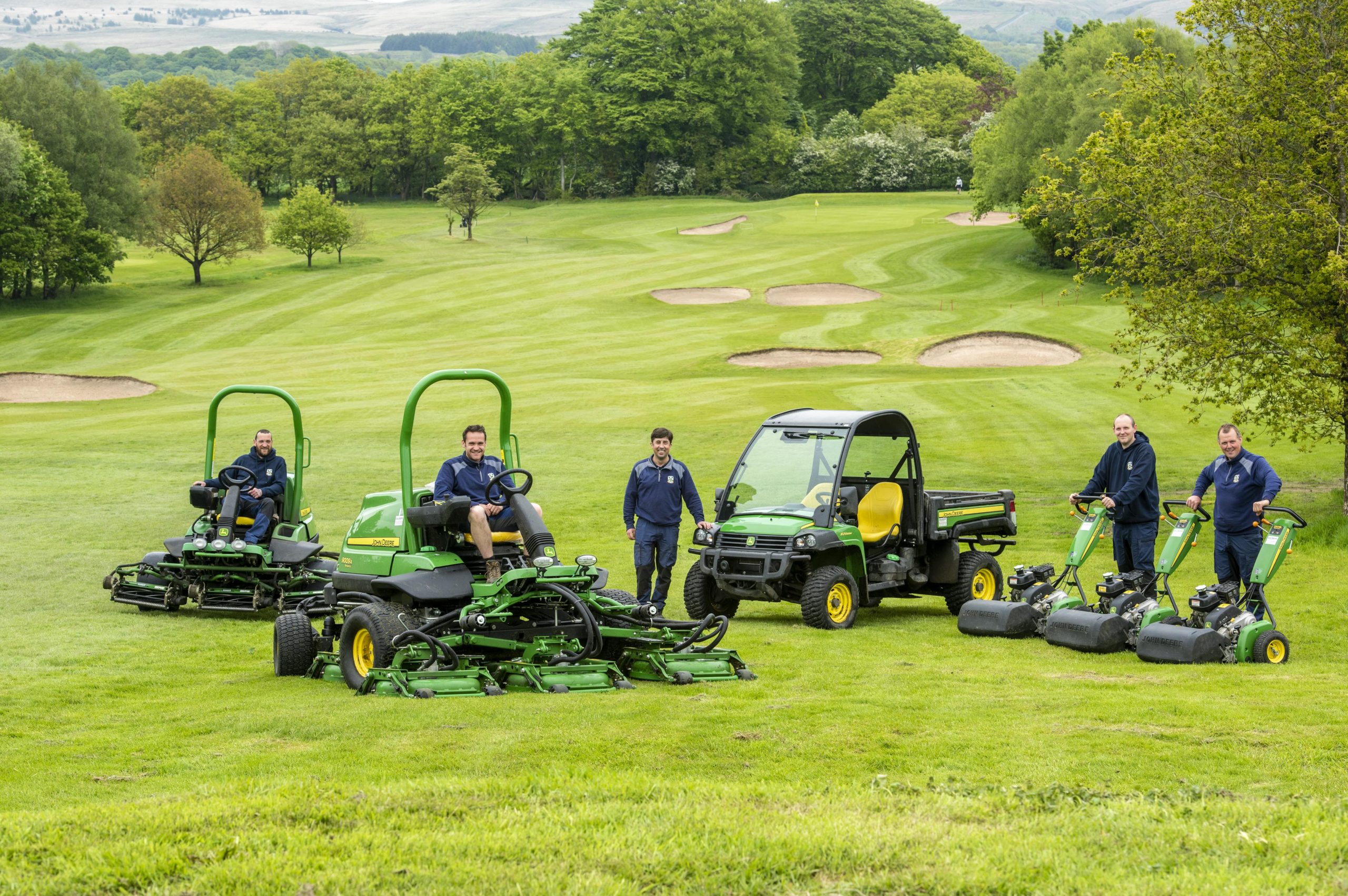Chorley Golf Club has got its 125-year anniversary year off to a good start by updating its machinery fleet.
The course sits in 127 acres between Bolton and Preston, drawing players out of both major conurbations to be challenged while taking in prime views that extend as far as the Lake District and North Wales.
With healthy membership numbers and a high number of visiting players, Head Greenkeeper Tony Grayson and his team of four – deputy John Cottam, Chris Riley, Stuart Angus, and Daniel Woan – are working to meet expectations every day.
“I try to produce the best course I can every day, as we have so many competitions”, he says. “It’s all about the presentation of the course – people want what they see on TV.”
Living up to the manicured greens and fairways seen on televised competitions is no mean feat in the north west of England, where consistent rainfall and clay soils present major challenges.
“The ground is very quick to get wet but also quick to dry as we are on a couple inches of topsoil and thatch on the fairways,” Tony said. “The bunkers are really difficult to maintain in bad weather because the clay contaminates the sand. Others might put in liners nowadays, but we’re on a limited resource and it costs a fortune.”
Pests and diseases, particularly fusarium, anthracnose, worm casts and leatherjackets are an increasing challenge too, with many chemicals being taken off the market. Frequently warm and wet conditions make the pressure relentless.
Keeping the course in top condition takes attention to detail, and the team can afford little machinery downtime. A breakdown can threaten to overwhelm the team so when they were handed the keys to a brand-new shed just before the first covid lockdown in March 2020, the impetus was there to invest in new machinery.
Tony said: “It had been difficult to invest in machinery because of the previous sheds in terms of their security and the environment – you don’t want to be keeping machines in damp conditions. We had an ageing fleet and the reliability, particularly of our previous rough mower, was going down. When you’ve got the grass growing like mad and a rough mower down, it’s difficult to manage.”
The team’s new shed now stores a John Deere 7500 fairway mower, a 9009A TerrainCut rough mower, an 8000A E E-Cut Hybrid fairway mower, a XUV86SM Gator, three 220SL SL PrecisionCut walk-behind greens mower and two 2500 greens mowers.
Tony said: “Looking at other brands, I found that John Deere, as well as being at the top, was offering value for money as well. Once I demoed everything, it was obvious what I was looking for. The machines are now specific to our course and environment so we can go out with more confidence, getting a nicer cut.
“The 8000AE is so versatile and it can even act as a backup fairways mower by quickly raising the height of cut. It is our key machine and the one that players will notice in terms of the appearance of the surrounds and approaches. Now, the green-side bunkers are part of the surround and we’re able to cut around this area with the new machine, making the presentation so much better.”
For the majority of the new machines, Tony opted to use John Deere Finance. And with a strong relationship with John Deere’s specialist servicing dealer Balmers GM spanning 20 years, the team at Chorley has direct access to support to maintain the machines. For its flagship machine, the 9009A, Tony reasoned that an operating lease, whereby the team would only pay for the use of the machine, would be the best option.
“The club looked at the hours our machines were doing – and with the rough mower doing the most hours, we took it out on an operational lease as we have a lot of semi-rough, and will look to change after five years.”
Following a successful 2021 with summer on the greenkeepers’ side and armed with a new machinery fleet, Tony’s sights are now set firmly on future proofing the course – and the reliability of the new machines will be crucial to ensuring this work can happen.
“Our aim now is to make the course longer by building a few more tee zones set right back on the course’s boundaries to cater for an increasing number of golfers hitting the ball further. All this has to be done without disrupting golfers’ experience or making a mess with the heavier equipment required. Our industry isn’t without its challenges but investing in the machines has really given our greenkeepers more pride in their work, and the machines are doing a fantastic job at presenting the course in the best light.”

